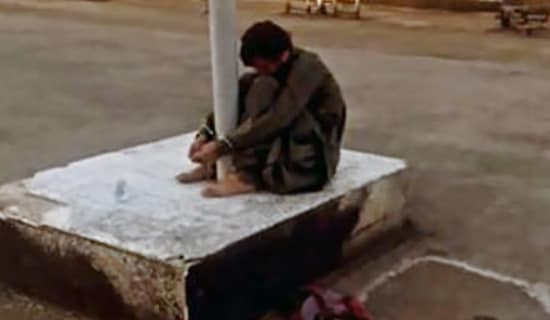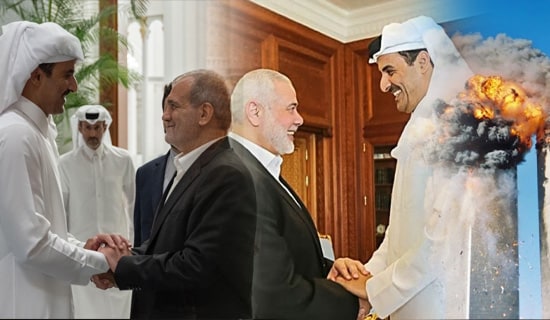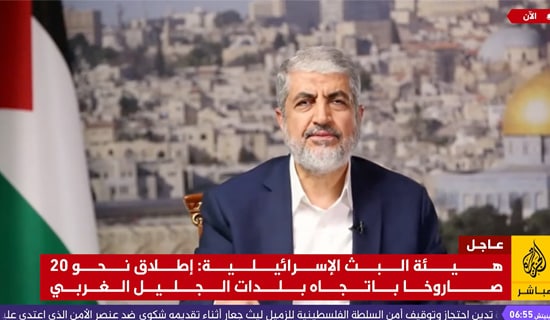The Russian military blogger and propagandist Maxim Fomin, aka Vladlen Tatarsky, was killed in a bomb attack on April 2, 2023, in a St. Petersburg cafe. The police have arrested Darya Trepova who had handed Tatarsky the booby-trapped statuette that killed him. Two leading commentators, Moskovski Komsomolets senior columnist Mikhail Rostovsky, and Petr Akopov of RIA Novosti predicted that the assassination of the pro-war blogger and former Donetsk separatist fighter would lead to a crackdown by the government.
For Rostovsky, the linkage made by the authorities between the supporters of imprisoned dissident Alexei Navalny and the Ukrainian special services meant that the two issues, hitherto separate, had merged into one. Even low-level and passive supporters of Navalny were now fair game. Akopov, although the title of his column is "Kyiv Turned To Terror. Moscow Cannot Wait Any Longer" hardly mentions Ukraine. For him, the Tatarsky assassination is reminiscent of the terrorist wave during the Czarist era, when many of the terrorists were the children of nobility and state officials. According to Akopov, today, it is the young affluent people in Moscow and St. Petersburg who are the apologists and potential recruits for terrorist attacks.
MEMRI presents the two articles below:

Vladlen Tatarsky (Source: Aif.ru)
In a column titled "The Political Fallout of Vladlen Tatarsky's Murder: Echoes of the St. Petersburg Explosion Will Be Deafening," Rostovsky states that the repression following the assassination will only be ratcheted up further. In his column, Rostovsky wrote:
"Landmark terrorist attacks always change a political landscape in the most radical way. The bombing in St. Petersburg, which injured more than three dozen people and killed war correspondent Vladlen Tatarsky, will be a loud affirmation of this rule.
"Excerpt from the official statement of the National Anti-Terrorism Committee [hereafter – NAC] reads, 'It has been established that... The terrorist act against the famous journalist Vladlen Tatarsky was planned by the Ukrainian special services with the involvement of agents from among those cooperating with the so-called Navalny's Anti-Corruption Foundation.'
"Only 29 words. But imagine how much they will change a country that has already changed dramatically since last February.
"Until the evening of April 2, 2023, the Russian state had two separate enemies – the Zelensky regime in Kyiv and the so-called 'Navalny's Anti-Corruption Foundation,' banned in Russia as an extremist organization and recognized as a foreign agent. Now these two enemies have merged into one, transforming into a two-headed hydra.
"And, befitting a hydra (in case you forget Greek mythology, it's a many-headed water serpent), this enemy does not fight openly but strikes underhandedly and then tries to 'hide in the tall grass.'
"From the state's point of view, methods of combating such an enemy can only be based on the total absence of any sentimentality. In fact, this principle, a complete lack of sentiment, was proclaimed by the Kremlin immediately after the start of the SVO [the Military Operation in Ukraine].
"To cite again Vladimir Putin's statement of March 16, 2022, 'The collective West is trying to split our society by speculating on military losses, on social and economic consequences of sanctions, [it strives to] to provoke civil strife in Russia and, using its fifth column [in Russia], to achieve its goal. And the goal is just one, the destruction of Russia, as I have already said.'
"'But any people, especially the Russian people, can always distinguish true patriots from scumbags and traitors and will simply spit them out like a gnat that accidentally flew into one's mouth, spit them out onto the panel [a place where a prostitute waits for clients]. I'm convinced that this natural and necessary self-purification of society will only strengthen our country, our solidarity, cohesion, and readiness to face any challenges.'
"All the principal points (about 'scumbags and traitors,' about the 'fifth column,' about 'gnats,' who will soon be 'spat out') were already outlined back then. But action, as you know, equals reaction.
"So far, the Russian authorities had no reason and no need to resort to the kind of tough measures, which the Russian President had hinted at (or rather openly stated). Now such a reason has emerged.
"The National Anti-Terrorism Committee's statement uses rather cautious wording. It does not equate the entire 'so-called Navalny's Anti-Corruption Foundation' with 'agents of Ukraine's secret services.' But is this a political or a purely linguistic nuance? My instincts tell me: as time goes on, it will be more and more about linguistic details with no applied political significance.
"I will try to put it less vaguely. Russia's deals with Ukraine's security services and army are mostly 'on the sidelines of the SVO.' However, by no means all of the people who formed the backbone or were simply supporters of the 'so-called Navalny's Anti-Corruption Foundation' now reside where Navalny himself is [i.e., in prison], or where his key subordinates, Leonid Volkov (recognized as a foreign agent) or Maria Pevchikh reside [in exile abroad].
"A fair number of people who have been associated with the 'so-called Navalny's Anti-Corruption Foundation' still live in Russia.
"From the moment the NAC statement was made public on April 3, 2023, all these people become potentially suspect individuals in the authorities' eyes. They are suspects not only in terms of potential anti-state activity, but in terms of terrorist activity. This is a different story.
"Take Daria Trepova, for instance, her online nickname is Tykvochka [Little Pumpkin]. She posts her photos on social networks in frivolous outfits and poses. 'Rich life experience' in the form of working as a salesperson in fashion showrooms. And out of the blue, such a seemingly light-headed character becomes a perpetrator (willingly or unwillingly – is another question) of a terrible act of terror.
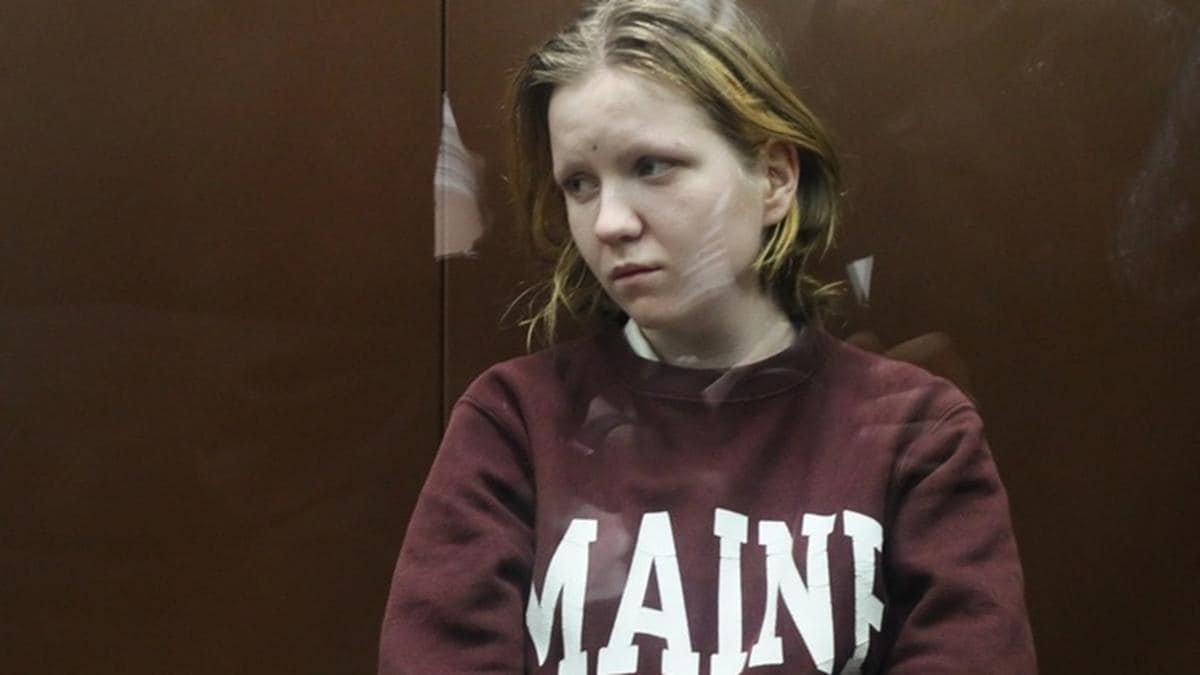
Darya Trepova (Source: Tsargrad.tv)
"If this is what the face of modern terror looks like now, then who among the individuals linked in the past to 'so-called Navalny's Anti-Corruption Foundation' might be above suspicion? The answer is self-evident.
"But a hardening of the state's stance towards 'scumbags and traitors' and the 'fifth column' (let me remind you, these are all Putin's words) can by no means be perceived as the only important consequence of the terrorist attack in St Petersburg.
"No less important and significant a consequence is the hardening of attitudes within Russian society itself. A terrorist act in a busy cafe, in a public space, in which children may have been (and were) present, is crossing of the line, a violation of every possible taboo.
"And action, as I have already reminded you once in this text, has an equal and opposite reaction. [Newton's third law]. Again, I don't want to decipher what this will mean in practical terms. I will limit myself to merely stating that the day of the St. Petersburg terrorist attack on April 2 has already become one of the most important milestones in modern Russian history. A milestone with a huge bloody minus sign."[1]
Without minimizing the role of the security services, Petr Akopov believes that the main battleground will be Russian society itself. He wrote:
"Many have no doubt that Vladlen Tatarsky's murder was a contract murder, but the investigation needs to reveal both the masterminds and the accomplices of Daria Trepova, who handed the explosive-filled bust [of Tatarsky himself] to the war correspondent.
"Nevertheless, it is more likely that Trepova herself was manipulated. That is, she actually didn't realize that she was participating in a terror attack. This doesn't exonerate her, but it adds an extra item to a crucial topic that needs to be discussed in tandem with the fight against terror emanating from Kyiv. How great is the threat of radical youth terror in Russia?
"The surname of the St. Petersburg 'bomber' seems to almost deliberately emphasize the issue's relevance, [since] almost a century and a half ago, the Head of the Moscow police, Governor-General Trepov, was murdered in St. Petersburg [in a terrorist attack].
"Vera Zasulich, who shot him, was acquitted by a jury, and thus, the age of individual terror began in Russia. Between the bullet fired by Zasulich in 1878 until the 1917 revolution there were several waves of individual terror which resulted in the assassination of Tsar Alexander II, Prime Minister [Pyotr] Stolypin, several ministers and governors, many officials and police officers.
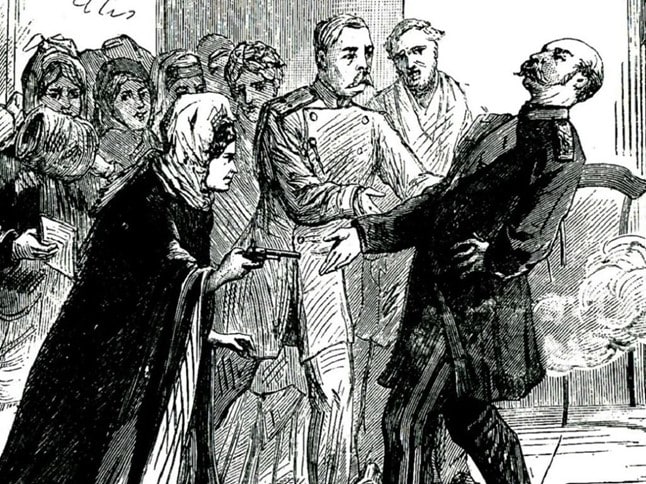
Vera Zasulich assassinates Trepov (Source: Pulse.mail.ru)
"Naturally, terror was part of the 'revolutionary struggle'. Even though it was mainly the Socialist Revolutionary party members who relied on this tool while majority of the radical opposition (almost all of whom were Marxists of various kinds) formally condemned it, terrorist methods gradually gained unofficial support from quite a few [members] of the liberal opposition, including in the Duma.
"In universities, editorial offices, and salons, people were rejoicing at news of an assassination of yet another 'satrap' and 'derzhimorda' [despised government official or oppressive goon]. Furthermore, the very choice of targets for assassination attempts was largely determined by 'progressive society's' stance (i.e., the 'beautiful people'). The last massive wave of murders of 'tsar's people' ended in 1907, when Stolypin restored order in the country and suppressed what was later called the 'first Russian revolution,' though four years later in Kyiv the assassin's bullet caught up with him too. But after 1917, terror became the norm, and individual terror was soon pushed to the background by state terror, and the country plunged into chaos and the bloodshed of the Civil War.
"There was no individual political terror since then, neither during the years of Soviet rule – ([Sergei] Kirov's [1934] murder was artificially presented as a conspiracy) – nor in the post-Soviet years. Terror associated with the Chechen wars did take place, but it had other reasons, goals, and methods. But one part of society wanting to kill government officials or supporters of these personages was unheard of.
"The fact that Trepova wasn't aware of what she was doing (thinking that the bust contained a listening device) doesn't change anything. Judging by the efforts she made in order to infiltrate the patriotic milieu, she was consciously playing the 'revolutionary' and the 'fighter for a righteous cause.' Trepova, despite her participation in anti-war rallies and association with the radical opposition, is certainly no Zasulich, who by the time of the assassination attempt had already gone through the [the Russian nihilist Sergey] Nechaev's group, Petropavlovsk prison, and exile.
"But justifications for Daria are made in exactly the same way by many of the emigrants and radical oppositionists in Russia; they argue that she killed a 'warmonger.' The fact that there is a process of legalization of terror (at least in the eyes of the public) is deliberately ignored. 'In order to live among wolves, one must howl like a wolf,' this is what the admirers of Zasulich and Trepova preach.
"So far, we've witnessed only the very first attempts at this legalization, but setting fire to military recruitment centers, as well as the murders of Dugina and Tatarsky have already occurred. A large part of the active prospective 'bombers' fled abroad, but the gullible and justice-seeking Russian youth are again being drawn to the path of 'fighting evil by all possible means.' If this was only the work of the Ukrainian security services, it wouldn't be all that bad, it is much worse when those posing as 'our guys,' our fellow citizens, who allegedly 'strive for freedom for their homeland,' are engaged in this.
"The paradox is that those who for years have been scaring everyone with a repeat of 1937 [Great Terror in Soviet Union] and state terror, have themselves, in fact, turned to terror, or at the minimum, are morally supporting it. God forbid if we are on the verge of a new wave of Russian terror, because the security services alone will not rectify the situation (although their work is very important).
"The key antidote to terror is the social atmosphere. But while the absolute majority of our people are unequivocally opposed to terror and condemn the terrorists, in some strata of society (for example, among some young people and students in both capitals [Moscow and St. Petersburg]) things are not so clear-cut. It's precisely there that the heirs to the 'revolutionary terrorist tradition' will seek, and are already seeking, an appreciative audience and followers. They need new [Vera] Zasulichs, [Sophia] Perovskayas,[2] [Ivan] Kalyayevs[3] and [Dmitry] Bogrovs,[4] while we need a great, united, and just Russia."[5]
[1] Mk.ru, April 3, 2023.
[2] Russian aristocrat hanged for leading the assassination of Czar Alexander II in 1881.
[3] Ivan Kalyayev, the son of a police inspector, was hanged for his role in the assassination of Grand Duke Sergei Alexandrovich, the Governor-General of Moscow in 1905.
[4] Dmitry Bogrov assassinated Stolypin in 1911.
[5] Ria.ru, April 9, 2023.


